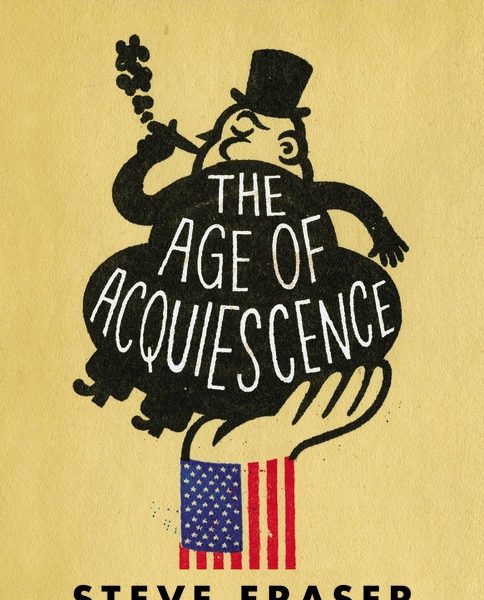The Saudi ruling elite has relied on US backing, and


Like many people in Canada I have been watching the American primaries with a detached morbid curiosity. And this last week in American politics did not disappoint…

About two thirds into Wages of Rebellion, Chris Hedges discusses the writing of Thomas Paine, saying “[Paine] spoke undeniable truths. And he did so in a language that was accessible…

Review of Steve Fraser, The Age of Acquiescence: The Life and Death of American Resistance to Organized Wealth and Power (New York: Little, Brown and Company, 2015)
All of us on the left are all too familiar with the capitalist offensive of the past forty years. Under the banner of “neo-liberalism” capital has rolled back almost every gain working people across the world have made since the 1930s. All sorts of public industries, services and institutions have been privatized, social welfare programs that protected workers from the worst insecurities of the labour-market have been rolled back or simply abolished and unions and working class political parties that had traditionally organized and represented working people have been severely weakened.
By Glen Ford
After decades of misleader-induced lethargy and quietude, Black America is finally in motion – or, at the very least, earnestly seeking ways to resist being plunged deeper into the abyss.
By Jase Short
Chris Hedges is one of the most celebrated intellectuals of the contemporary US Left. A former New York Times reporter who essentially lost his job for taking a public stand against the invasion of Iraq, Hedges straddles the line between cynical doomsayer and principled critic of mainstream politics. In spite of many lapses in judgment in his intellectual work, the general thrust of his political standpoint is a welcome relief to those who have a hard time finding intellectuals who take the crises of global capitalism seriously.
By David Finkel
“Reader, suppose you were an idiot. And suppose you were a member of Congress. But I repeat myself,” wrote Mark Twain. That 19th century epigraph can serve to express today’s attitude of a large and growing proportion of the US public, especially over the federal budget “sequester” — across-the-board cuts that began taking effect on March 1.
Review of David Gilbert, Love and Struggle: My Life in SDS, The Weather Underground, and Beyond (PM Press, 2012).
By Kim Moody
This article is Part 2 of a 2-part series, and is the basis of a presentation at the Historical Materialism 2012 conference in Toronto [http://www.yorku.ca/hmyork/]. Part 1 can be found here. The authors are both based in the United States, and thus use the term “tribal nations” and American Indians (Indigenous peoples in Canada refer to themselves as “First Nations”). – NSW
This article is Part 1 of a 2-part series. Part 2 can be found here.The authors are both based in the United States, and thus use the term “tribal nations” (Indigenous peoples in Canada refer to themselves as “First Nations”) — NSW
By Andrew Curley and Roxanne Dunbar-Ortiz
Ron Paul is a Texas member of Congress currently running in the Republican presidential primaries.
Paul certainly won’t win the Republican nomination, but he has the potential to galvanize a movement around his agenda. Why does this matter to people in Canada who support radical social change?
By Maryann Abbs
Review of Eric Mann, Playbook for Progressives: 16 Qualities of the Successful Organizer (Boston: Beacon Press, 2011).
By Tessa Echeverria and Andrew Sernatinger
On a cold January day in Wisconsin, the two of us sat over a couple of cups of coffee and started talking, like many others, about what was happening in the world and remarked on the chain of revolts across Europe and North Africa. We got up to leave and passed a copy of January’s Economist magazine, the cover reading “The Battle Ahead, Confronting the Public Sector Unions.” We crossed East Washington Avenue, a long stretch of vacant manufacturing buildings in Madison, and asked each other, “When is it going to be our turn?”